Man jailed for Wrexham Covid vaccine plant bomb scare
- Published
The moment Anthony Collins was arrested
A bomb hoaxer who sent a suspicious package to a Covid jab plant has been jailed for two years and three months.
Anthony Collins, 54, from Chatham, Kent, was convicted of posting an article to the factory in Wrexham, with the intention of inducing the belief it was likely to explode or ignite.
The parcel caused 120 people to stop manufacturing the Oxford-AstraZeneca vaccine at the factory in January.
He denied the charge but was found guilty following trial.
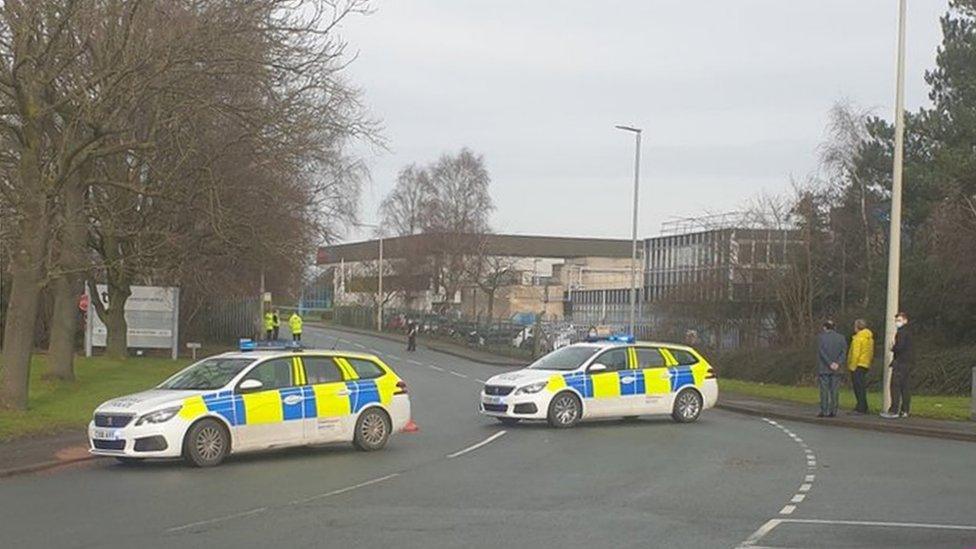
The bomb scare caused 120 people to be evacuated from the site
Bomb disposal teams successfully detonated the parcel but found no explosive material.
Instead, the package contained a calculator, a garden glove, four batteries, a "yellow biohazard bar", a service wipe and a quantity of paper.
But a supermarket receipt and a letter revealed Collins to be the culprit who sent the parcel.
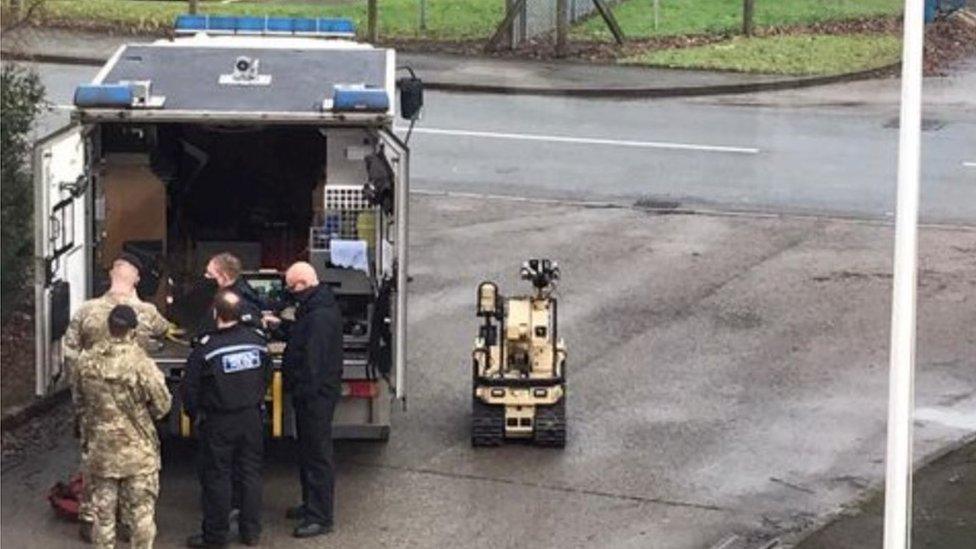
The Army sent a bomb disposal unit to Oxford-AstraZeneca vaccine producer Wockhardt's unit
CCTV also captured Collins buying the items and a transaction record was obtained by police.
Collins admitted sending the package without being prompted to but denied intending to create a bomb scare, claiming he believed the items he was posting would be useful to workers at the factory.
However, he did admit that he knew his actions might cause alarm.
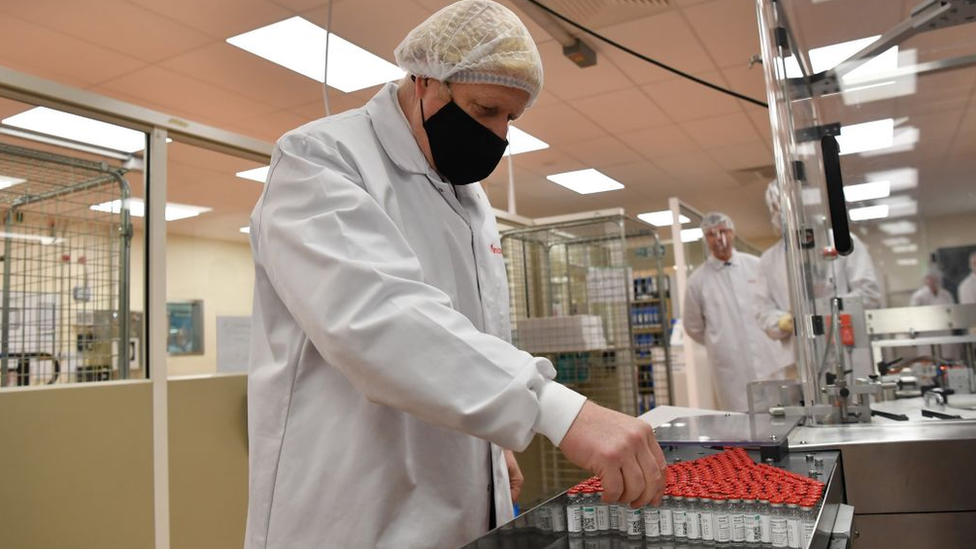
Prime Minister Boris Johnson saw the production line for vaccines when he visited the factory
Wockhardt, a global pharmaceutical and biotechnology company, was providing fill-and-finish services for the Oxford-AstraZeneca vaccine, the final stage of putting the vaccine into vials.
Det Insp Adam Marshall, of Kent Police, said: "Collins was fully aware of the impact his actions would have and chose to impede the vaccine rollout when the programme was still in its infancy.
"Although the device he sent was not a viable explosive, the people at the site had every reason to believe there was a threat to their safety and they acted in a diligent and thoroughly appropriate way."
Related topics
- Published24 November 2021

- Published27 January 2021
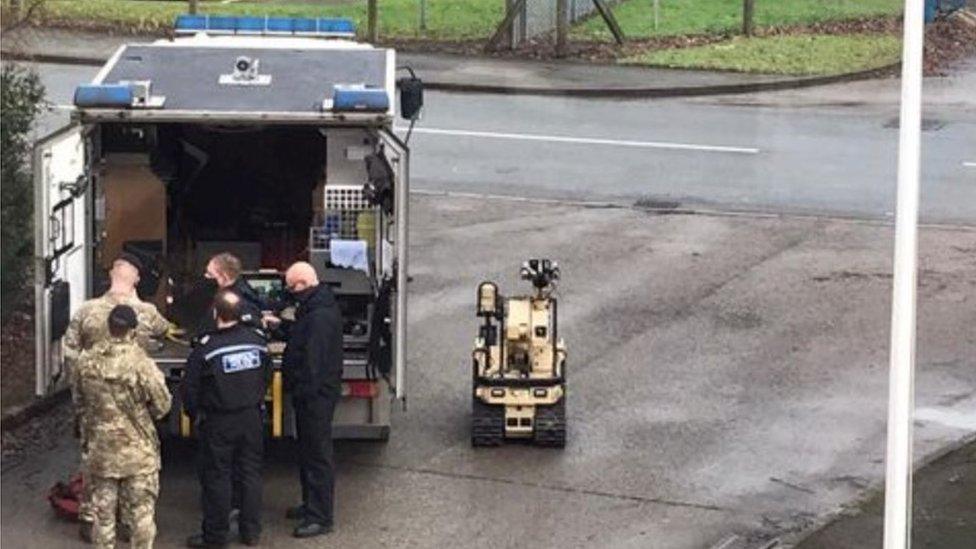
- Published15 November 2021
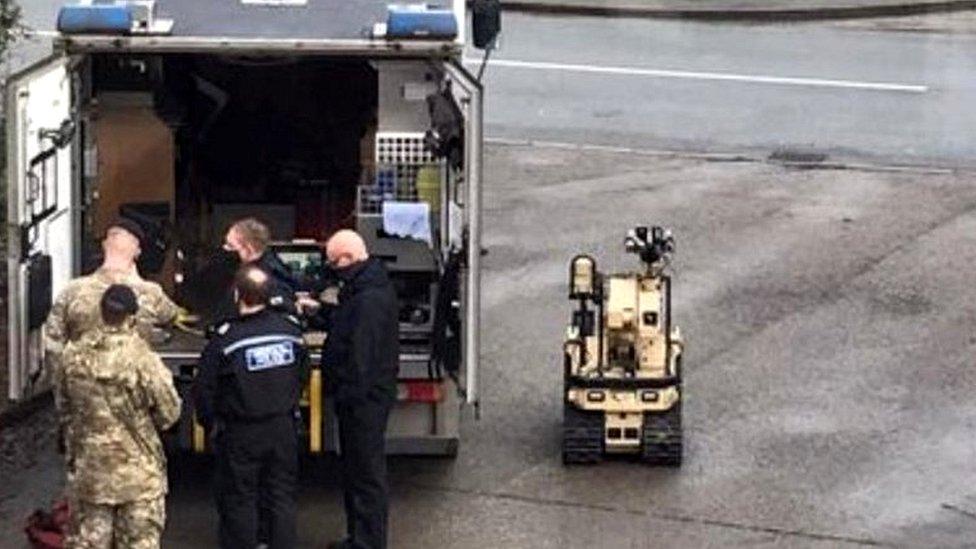
- Published18 November 2021
